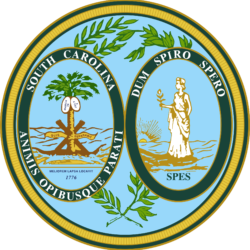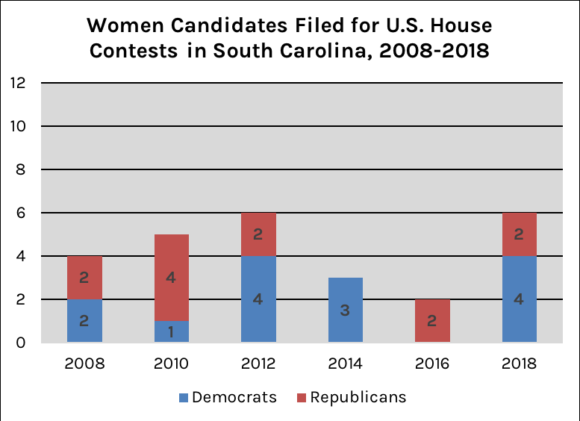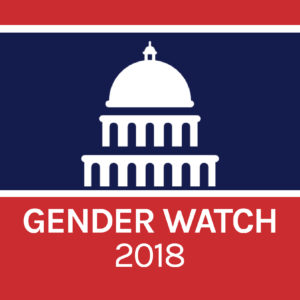
Ahead of the South Carolina primary election on June 12, 2018, we outline the numbers and proportions of women who have filed as candidates for congressional and statewide office. The data below also provide points of historical comparison to give context to today’s presence and potential success of women candidates.
All data are provided from the Center for American Women and Politics, Eagleton Institute of Politics, Rutgers University. For a full list of the women candidates in South Carolina primary races for congressional and statewide offices, see CAWP’s Election Watch page.
CONGRESS
Current: 0 of 9 members of the South Carolina congressional delegation (0%)
Filed: 6 (4D, 2R)
Percent of all Filed Congressional Candidates (D/R): 14% (6 of 43)
South Carolina is one of 11 states that currently has no women representing it in Congress.
SENATE
Current: 0 of 2 senators
- No woman has ever represented South Carolina in the U.S. Senate.
THERE IS NO U.S. SENATE ELECTION IN SOUTH CAROLINA THIS YEAR.
HOUSE
Current: 0 of 7 representatives (0%)
- 5 (5D) women have served in the U.S. House from South Carolina, though 4 of 5 congresswomen from South Carolina were elected in special elections to fill vacancies created by the deceased husbands (they all served less than a full term). The first SC woman elected in her own right, and for multiple terms, left the U.S. House in 1993.
Filed: 6 (4D, 2R)
- 2 (1D, 1R) women are running for the open seat in South Carolina’s 4th congressional district.
- 3 (3D) women are running to challenge Republican incumbents in the general election.
- 1 (1R) woman is challenging a Republican incumbent in the primary election.
* Of the 6 women running for the U.S. House, just 1 is a woman of color: Democrat Toby Smith, a Black woman, is running in South Carolina’s 1st congressional district.
Districts with Women Candidates: 4 of 7
Percent of all Filed House Candidates (D/R): 14% (6 of 43)
Percent of all Filed Democratic House Candidates: 19% (4 of 21)
Percent of all Filed Republican House Candidates: 9.1% (2 of 22)

Recent history: The number of women who filed for major party candidacy for the U.S. House in South Carolina in 2018 matches the number that ran in 2012, when – like in 2018 – there was 1 open U.S. House seat.
- This year matches the highest number of Democratic women running for the U.S. House in South Carolina between 2008, but more Republican women (4) ran for the House in 2010.
GOVERNOR
Current: 0
Nikki Haley (R) was the first and remains the only woman governor of South Carolina. She served from 2011-2017.
Filed: 2 (1D, 1R)
- Catherine Templeton is challenging incumbent Governor Henry McMaster for the Republican nomination for governor.
- Marguerite Willis is seeking the Democratic nomination to challenge the Republican incumbent.
Percent of all Filed Gubernatorial Candidates (D/R): 25% (2 of 8)
Percent of all Filed Democratic Gubernatorial Candidates: 33.3% (1 of 3)
Percent of all Filed Republican Gubernatorial Candidates: 20% (1 of 5)
OTHER STATEWIDE ELECTED EXECUTIVE OFFICES
Current: 1 (1R) of 8 positions (excludes governor) (12.5%)
- Incumbent Superintendent of Public Instruction Molly Spearman (R) is running for re-election this year. She is the only Republican woman running for a statewide executive office in 2018.
Filed: 3 (2D, 1R)
- 2 (2D) women are unopposed in their primary bids to challenge Republican incumbents for attorney general and state treasurer.
- 1 (1R) incumbent woman – Molly Spearman – is running for re-election as superintendent of public instruction. She is unopposed in the primary election.
- There are no women candidates for commissioner of agriculture, comptroller, or secretary of state.
Percent of all Filed Statewide Executive (other than governor) Candidates (D/R): 20% (3 of 15)
Percent of all Filed Democratic Statewide Executive (other than governor) Candidates: 50% (2 of 4)
Percent of all Filed Republican Statewide Executive (other than governor) Candidates: 9.1% (1 of 11)
*Rosalyn Glenn (D), a Black woman, is the only woman of color running for statewide executive office in South Carolina this year. She will be the Democratic nominee for state treasurer, challenging incumbent Curtis Loftis.
Recent history: The number of women who filed for major party candidacy for the statewide executive offices (other than governor) in South Carolina in 2018 is not a record high. More women competed for these nominations in both 2014 (8) and 2010 (4).


 From March to December 2018, the
From March to December 2018, the 